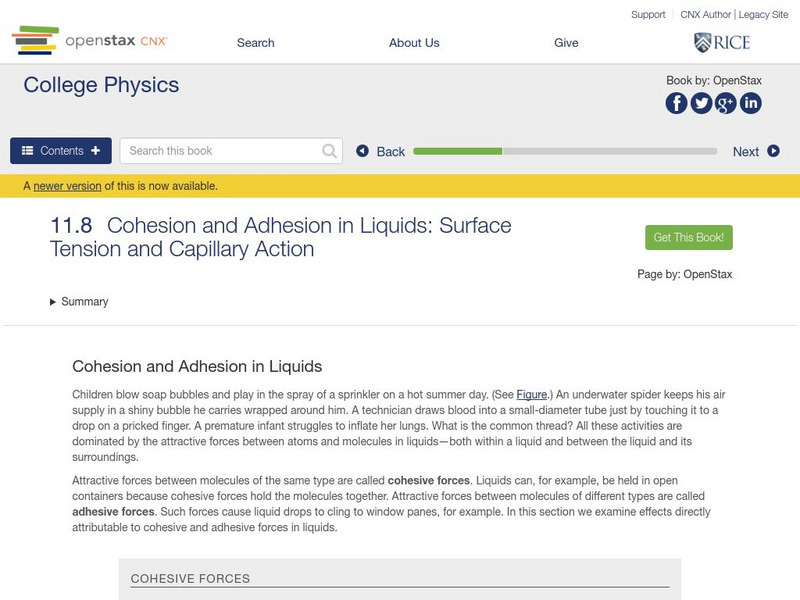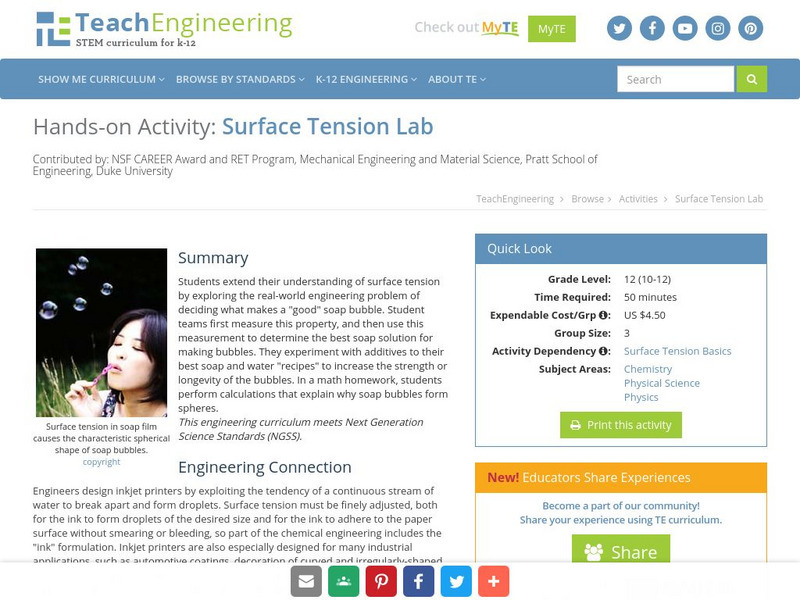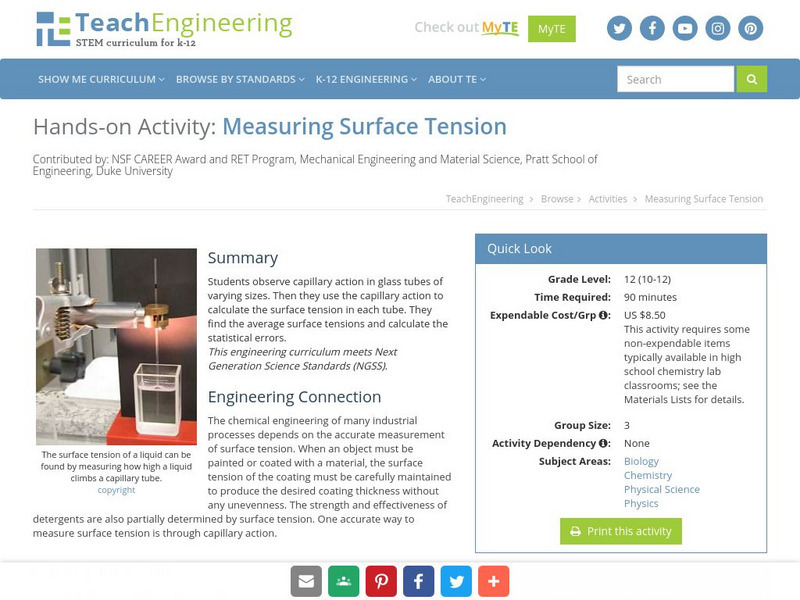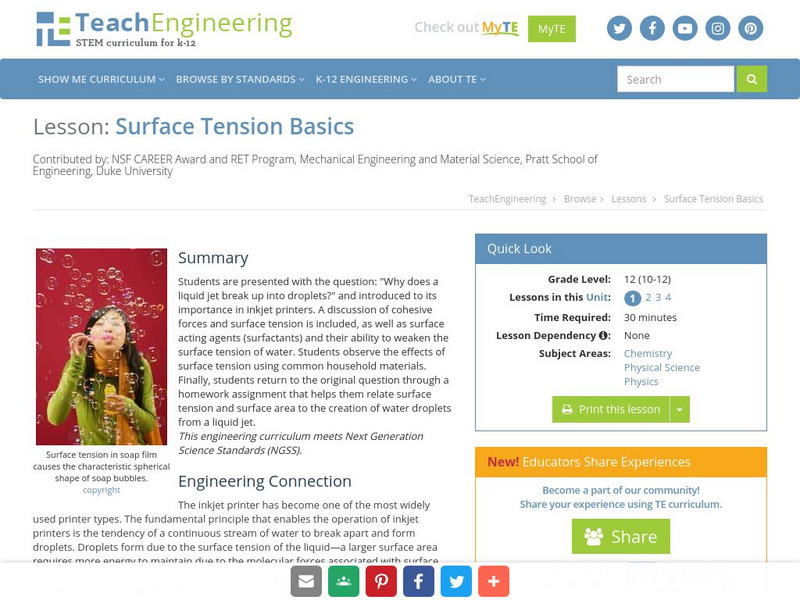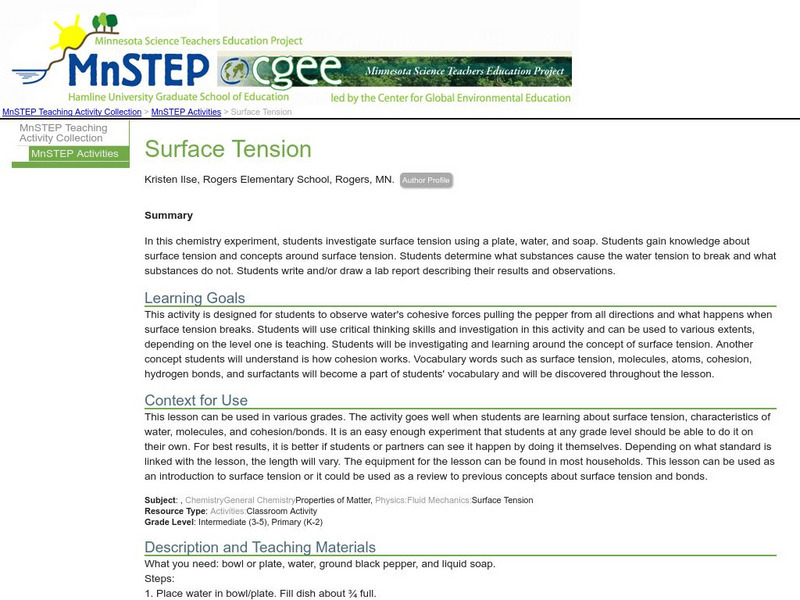OpenStax
Open Stax: Cohesion and Adhesion in Liquids: Surface Tension and Capillary Action
From a chapter on Fluid Statics in a Physics textbook. This section of the chapter describes the cohesive and adhesive forces in liquids, the role of cohesion in the surface tension of liquids and bubbles, and how capillary action works....
TeachEngineering
Teach Engineering: Surface Tension Lab
Students extend their understanding of surface tension by exploring the real-world engineering problem of deciding what makes a "good" soap bubble. Student teams first measure this property, and then use this measurement to determine the...
TeachEngineering
Teach Engineering: Exploring Capillary Action
Students observe multiple examples of capillary action. First they observe the shape of a glass-water meniscus and explain its shape in terms of the adhesive attraction of the water to the glass. Then they study capillary tubes and...
TeachEngineering
Teach Engineering: Measuring Surface Tension
Students observe capillary action in glass tubes of varying sizes. Then they use the capillary action to calculate the surface tension in each tube. They find the average surface tensions and calculate the statistical errors.
TeachEngineering
Teach Engineering: Surface Tension Basics
Students are presented with the question: "Why does a liquid jet break up into droplets?" and introduced to its importance in inkjet printers. A discussion of cohesive forces and surface tension is included, as well as surface acting...
Science Education Resource Center at Carleton College
Serc: Mn Step: Surface Tension
A simple experiment investigating surface tension and the cohesive property of water, using just water, pepper, and liquid soap.


